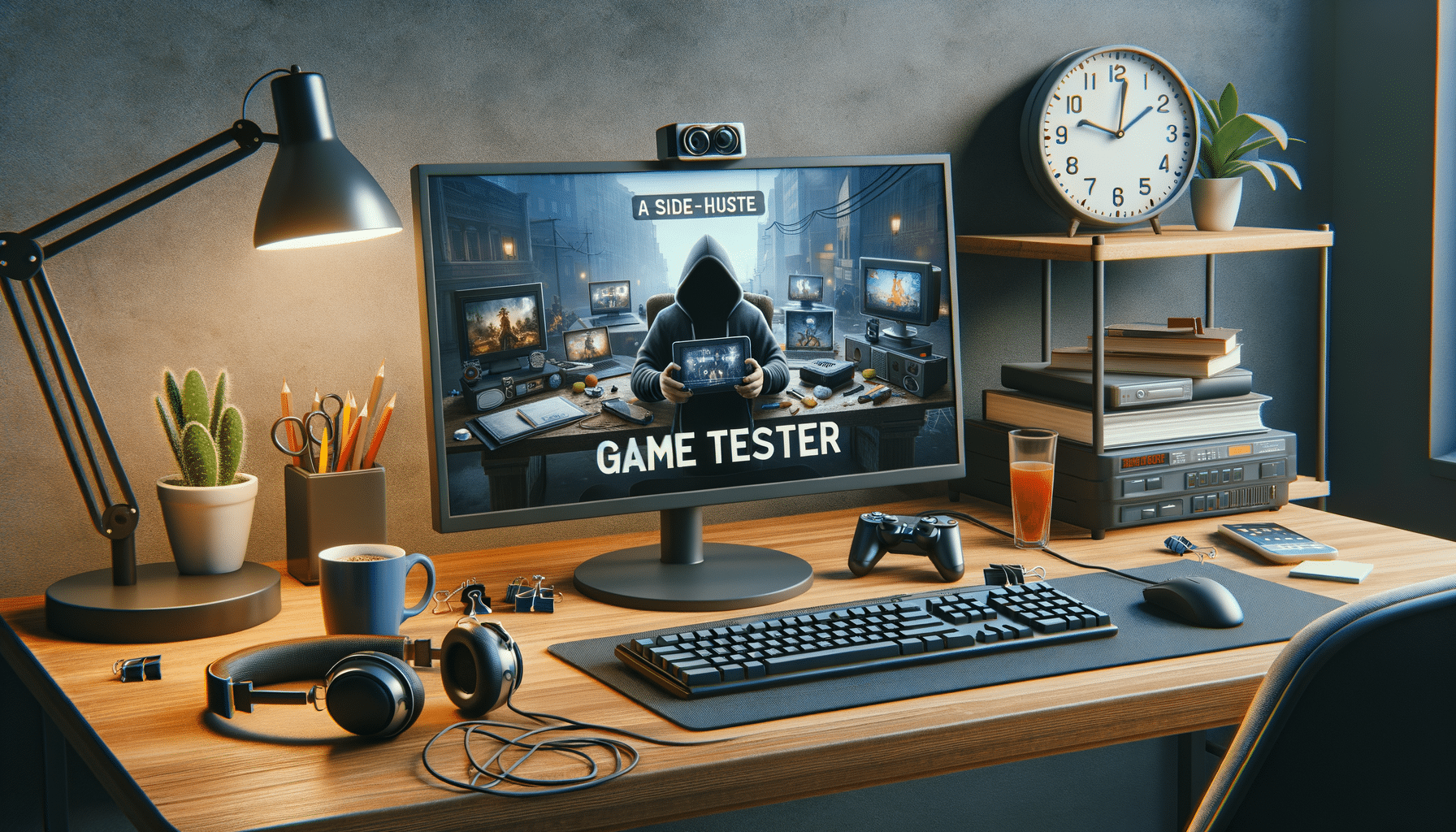Start Your Side Hustle as a Game Tester!
If you love gaming, becoming a game tester could be a great way to earn extra income. While experience can be helpful, many entry-level opportunities focus on your ability to follow instructions and provide feedback. Get started today and explore the potential of turning your passion into a rewarding side gig!

Understanding the Role of a Game Tester
The role of a game tester is both fascinating and critical in the gaming industry. Game testers are responsible for playing games to find and document bugs or glitches before the game is released to the public. This ensures a smooth user experience and helps maintain the reputation of the game developers. The role requires a keen eye for detail and the ability to replicate issues consistently, so they can be effectively communicated to the development team.
Game testers often work closely with developers, providing feedback on gameplay, graphics, and overall user experience. The feedback can range from technical issues like frame rate drops to more subjective elements such as storyline coherence or character development. This collaboration is essential, as it provides developers with the insights needed to enhance the game.
While the job may seem straightforward, it requires a variety of skills. Testers must have strong analytical abilities to identify patterns in gameplay and articulate these findings clearly. Additionally, they should possess excellent communication skills to ensure that their feedback is both precise and actionable.
Skills and Qualifications Needed
Becoming a game tester does not necessarily require a formal degree, but certain skills and qualifications can significantly enhance your prospects. A passion for gaming is a given, but beyond that, testers need to have a strong understanding of gaming mechanics and genres. Familiarity with various gaming platforms, from consoles to PCs, is also beneficial.
Technical skills are crucial. Testers should have a basic understanding of software development processes and be comfortable using bug tracking software. Familiarity with programming languages can be an advantage, although it is not always necessary for entry-level positions.
Soft skills are equally important. Testers must be detail-oriented, patient, and possess strong problem-solving skills. The ability to work under tight deadlines is often required, as game releases are scheduled events that cannot be delayed. Moreover, good communication skills are essential for writing clear and concise bug reports.
In some cases, certifications in software testing or game development can be beneficial. These certifications demonstrate a commitment to the field and can make candidates more attractive to potential employers.
The Testing Process: From Alpha to Beta
The game testing process typically follows a structured path from alpha to beta testing. Alpha testing is the initial phase where the game is tested internally by the developers and a small group of testers. This phase focuses on identifying major issues that could impact the core functionality of the game. Testers at this stage work closely with developers to address these issues quickly.
Once the game reaches a more stable state, it moves into beta testing. This phase involves a larger group of testers and sometimes includes members of the public. Beta testing aims to uncover less obvious bugs and gather feedback on user experience. It is a crucial phase for stress testing the game, ensuring it can handle the expected load of players upon release.
Throughout both phases, testers are responsible for documenting their findings in detailed reports. These reports are used by developers to make necessary adjustments and improvements to the game. Effective communication between testers and developers is critical in this process, as it ensures that issues are understood and addressed promptly.
Opportunities and Challenges in Game Testing
The game testing industry offers numerous opportunities, especially for those passionate about gaming. With the gaming industry continuously expanding, the demand for testers remains strong. Opportunities exist across various platforms, including mobile, console, and PC games. Freelance and remote positions are also becoming more common, providing flexibility for testers.
However, the role is not without its challenges. Game testing can be repetitive and requires a high level of concentration. Testers may have to play the same level repeatedly to identify issues, which can be monotonous. Additionally, the job can be demanding, with tight deadlines and pressure to deliver bug-free games.
Despite these challenges, many find the work rewarding. Testers play a vital role in shaping the final product and ensuring a positive experience for players. For those who love gaming and enjoy problem-solving, game testing can be a fulfilling career path.
Getting Started as a Game Tester
For those interested in becoming a game tester, there are several steps to get started. Building a strong resume that highlights relevant skills and experience is essential. Including any previous testing experience, even if unrelated to gaming, can be beneficial.
Networking is also crucial. Joining online communities and forums dedicated to game testing can provide valuable insights and connections. Many game testers find opportunities through word of mouth or recommendations from others in the industry.
Applying to testing positions can be done through job boards and company websites. Tailoring your application to highlight your passion for gaming and attention to detail can make you stand out. Additionally, consider starting with freelance testing gigs to gain experience and build a portfolio.
Lastly, continuous learning and staying updated with industry trends can enhance your prospects. As the gaming industry evolves, so do the skills required for testing. Engaging in online courses or workshops can help keep your skills sharp and relevant.